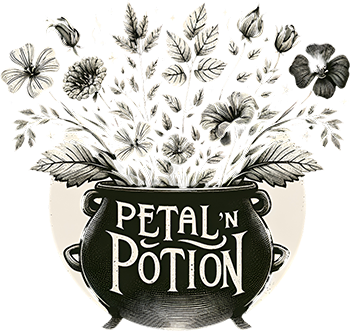E l d e r b e r r y
Elderberry (Sambucus nigra) is a small, dark purple fruit from the European elder tree.
It has been used for centuries in traditional medicine due to its numerous health benefits,
particularly for supporting the immune system and fighting off infections.
Benefits
- Immune Support: Enhances immune function and helps the body fight off viral infections such as colds and flu.
- Antioxidant Properties: Provides powerful antioxidants that protect cells from oxidative stress and damage.
- Anti-Inflammatory: Reduces inflammation, benefiting conditions like arthritis and other inflammatory diseases.
- Respiratory Health: Helps alleviate symptoms of respiratory conditions such as colds, flu, bronchitis, and sinus infections.
- Heart Health: Supports cardiovascular health by reducing blood pressure and cholesterol levels.
- Digestive Health: Promotes healthy digestion and alleviates digestive issues such as constipation.
- Skin Health: Treats skin conditions such as acne, eczema, and boils due to its antibacterial and antiviral properties.
- Weight Management: Contains compounds that may aid in weight management and support metabolic health.
- Anti-Cancer Properties: Exhibits potential anticancer effects that may help prevent or treat certain types of cancer.
Active Compounds
- Anthocyanins: The primary active compounds responsible for elderberry’s antioxidant and anti-inflammatory properties.
- Flavonoids: Provide additional antioxidant protection and support overall health.
- Phenolic Acids: Offer further antioxidant and anti-inflammatory benefits.
- Vitamins (A, B6, C): Essential for immune function, skin health, and overall wellness.
- Minerals (Iron, Potassium, Phosphorus): Support various bodily functions, including cardiovascular and bone health.
- Rutin: A flavonoid known for its antioxidant and anti-inflammatory effects.
- Quercetin: Another potent flavonoid with antihistamine and anti-inflammatory properties.
Who Should Avoid This
- Individuals with Allergies: Those allergic to elderberry or related plants should avoid it.
- Pregnant and Nursing Women: Generally considered safe when cooked and consumed moderately, but it is advisable to consult a healthcare provider before use.
- Individuals with Autoimmune Diseases: Should use caution, as elderberry may stimulate the immune system.
- Individuals on Medication: Particularly those taking immunosuppressants or diuretics should consult a healthcare provider to avoid interactions.
- Children: Raw elderberries, leaves, and stems contain cyanogenic glycosides, which can be toxic; always ensure elderberry products are properly prepared and safe for consumption.
Warnings
While elderberry offers numerous health benefits, some precautions and potential side effects should be considered:
- Gastrointestinal Issues: High doses or consumption of raw berries may cause stomach upset, nausea, vomiting, or diarrhea.
- Allergic Reactions: Can cause allergic reactions in some individuals.
- Pregnancy and Breastfeeding: Generally considered safe when cooked and consumed in moderate amounts, but consult a healthcare provider before use.
- Interactions with Medications: May interact with certain medications, including immunosuppressants and diuretics.
Usage Guidelines
Elderberry can be used both short-term and long-term, depending on the condition being treated. For acute issues such as cold and flu symptoms, it is typically used until symptoms improve. For ongoing benefits such as immune support, heart health, or general wellness, longer-term use may be appropriate but always under the guidance of a healthcare professional. Always consult with a healthcare provider to determine the correct dosage and duration for your specific needs.
